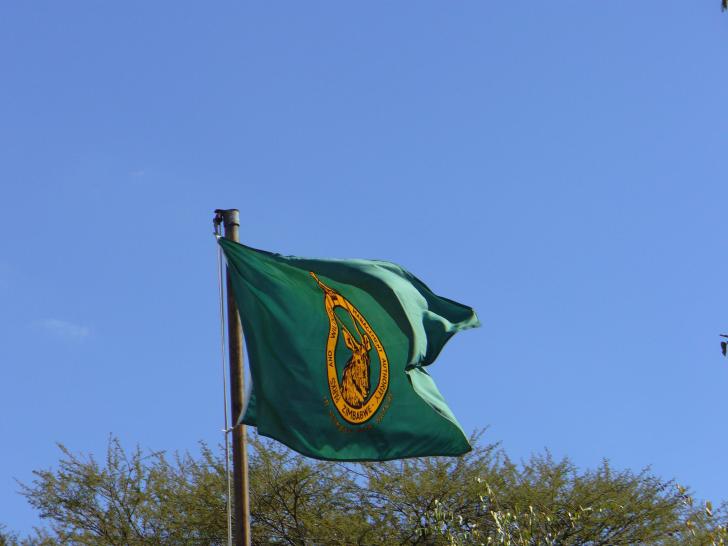News / Local
ZimParks reviews elephant plan
5 hrs ago | Views

The Zimbabwe Parks and Wildlife Management Authority (Zimparks) has commenced a comprehensive review of its Elephant Management Plan (2021–2025), prompted by growing frustration among local communities over the lack of tangible benefits from conservation efforts and the escalating human-elephant conflict.
The review workshop, held in Hwange, brought together key stakeholders including government officials, conservationists, academic experts, and - for the first time - five traditional chiefs from Hwange District. Their involvement marked a significant shift in the dialogue surrounding elephant conservation, as they voiced strong concerns over the socio-economic burdens placed on rural communities that coexist with wildlife.
"Communities living side-by-side with elephants continue to suffer while the world praises Zimbabwe for its elephant conservation successes," said Zimparks spokesperson Mr Tinashe Farawo. "We cannot talk about sustainability if the people bearing the cost of conservation are not benefiting."
Traditional leaders highlighted the deepening poverty in areas bordering protected parks and detailed the severe impact of elephant incursions, including crop destruction, injuries, and property damage. They called for a dedicated relief fund for victims of human-wildlife conflict and demanded a greater share of revenue generated through conservation initiatives.
"We understand the frustration of communities and we are committed to ensuring that the new ten-year strategy will be more inclusive and community centred," Mr Farawo added. "Conservation is not just about animals; it is about people too."
The review also exposed the stark financial limitations undermining Zimbabwe's conservation infrastructure. Hwange National Park, home to one of the largest elephant populations in Africa, is operating on an annual budget of less than US$500,000 - a figure far below the estimated US$21 million required for effective management, based on regional benchmarks.
"Elephant conservation in Zimbabwe remains severely underfunded," said Mr Farawo. "We are doing the best we can with limited resources, but we need broader support, both locally and globally."
Despite progress in curbing poaching, achieved through strengthened partnerships and enforcement, Zimbabwe continues to face obstacles in accessing funding linked to its elephant population. International restrictions on the trade in ivory and other elephant products have curtailed opportunities to monetise its conservation achievements.
The outcome of the ongoing review process will shape the framework for a new ten-year Elephant Management Plan aimed at balancing ecological protection with the needs of human communities. Mr Farawo encouraged inclusive participation in the consultations.
"This is a national issue," he said. "We must ensure that conservation efforts serve both our wildlife and our people."
The review workshop, held in Hwange, brought together key stakeholders including government officials, conservationists, academic experts, and - for the first time - five traditional chiefs from Hwange District. Their involvement marked a significant shift in the dialogue surrounding elephant conservation, as they voiced strong concerns over the socio-economic burdens placed on rural communities that coexist with wildlife.
"Communities living side-by-side with elephants continue to suffer while the world praises Zimbabwe for its elephant conservation successes," said Zimparks spokesperson Mr Tinashe Farawo. "We cannot talk about sustainability if the people bearing the cost of conservation are not benefiting."
Traditional leaders highlighted the deepening poverty in areas bordering protected parks and detailed the severe impact of elephant incursions, including crop destruction, injuries, and property damage. They called for a dedicated relief fund for victims of human-wildlife conflict and demanded a greater share of revenue generated through conservation initiatives.
"We understand the frustration of communities and we are committed to ensuring that the new ten-year strategy will be more inclusive and community centred," Mr Farawo added. "Conservation is not just about animals; it is about people too."
The review also exposed the stark financial limitations undermining Zimbabwe's conservation infrastructure. Hwange National Park, home to one of the largest elephant populations in Africa, is operating on an annual budget of less than US$500,000 - a figure far below the estimated US$21 million required for effective management, based on regional benchmarks.
"Elephant conservation in Zimbabwe remains severely underfunded," said Mr Farawo. "We are doing the best we can with limited resources, but we need broader support, both locally and globally."
Despite progress in curbing poaching, achieved through strengthened partnerships and enforcement, Zimbabwe continues to face obstacles in accessing funding linked to its elephant population. International restrictions on the trade in ivory and other elephant products have curtailed opportunities to monetise its conservation achievements.
The outcome of the ongoing review process will shape the framework for a new ten-year Elephant Management Plan aimed at balancing ecological protection with the needs of human communities. Mr Farawo encouraged inclusive participation in the consultations.
"This is a national issue," he said. "We must ensure that conservation efforts serve both our wildlife and our people."
Source - the herald

































